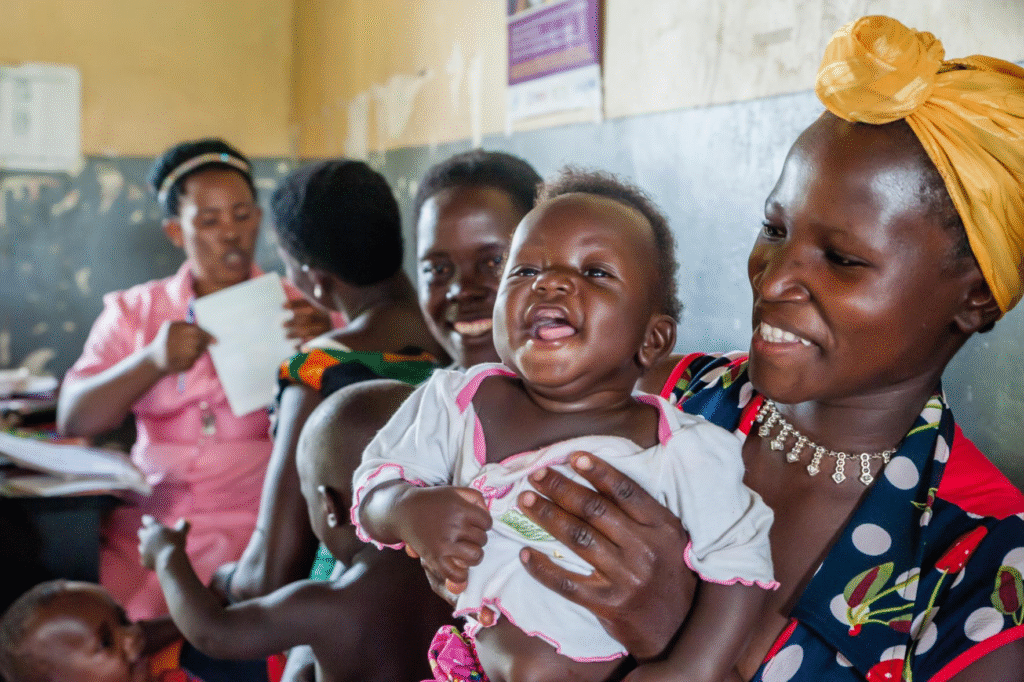Uganda is intensifying its fight to eliminate mother-to-child transmission of HIV, syphilis, and hepatitis B, a public health threat that has long jeopardized the survival and wellbeing of infants, despite the availability of proven prevention tools.
The Ministry of Health, working with global partners such as UNAIDS, WHO, CDC, and PEPFAR, has adopted a “triple elimination” approach, integrating HIV, syphilis, and hepatitis B services into maternal and child healthcare. This strategy has already yielded striking results, particularly in the reduction of new paediatric HIV infections.
According to the Uganda AIDS Commission (UAC), new HIV infections among children have declined by 76% over the past 14 years, from 20,000 in 2010 to just 4,700 in 2024. Notably, Uganda’s current vertical transmission rate is 6%, placing it within reach of the World Health Organization’s elimination threshold of 5%.
“This is a major milestone,” said Dr. Robert Mutumba, head of the AIDS Control Programme at the Ministry of Health. “However, 61% of new infections still occur during breastfeeding, largely due to mothers dropping off treatment or acquiring HIV late in pregnancy.”
The success in reducing HIV transmission is largely attributed to increased antiretroviral therapy coverage and improved viral load suppression among HIV-positive pregnant women. CDC’s Uganda office noted that when a mother maintains an undetectable viral load through treatment, the risk of transmission to her baby drops to virtually zero.
Between 2017 and 2019, the U.S. President’s Emergency Plan for AIDS Relief (PEPFAR), through CDC, invested $3.25 million in an impact evaluation of Uganda’s Prevention of Mother-to-Child Transmission (PMTCT) programs. The findings highlighted consistent progress in lowering HIV transmission and infant mortality over two decades of support.
Hidden Dangers: Syphilis and Hepatitis B
While attention has largely centred on HIV, the fight against congenital syphilis and hepatitis B remains far more complex. Uganda’s Ministry of Health reports that active syphilis affects 2.1% of adults, with prevalence spiking to 6.2% among HIV-positive individuals.
“Syphilis doesn’t receive the same attention as HIV/AIDS, yet its consequences for unborn babies are devastating,” said Dr. Harriet Nankunda, a senior reproductive health officer. “Stillbirths, congenital deformities, and neonatal deaths can be prevented with early diagnosis and treatment.”
Progress on hepatitis B is even slower. Adult infection stands at 4.1%, while child prevalence is lower at 0.6%. However, regional disparities persist, with some areas, such as mid-Northern Uganda, registering rates as high as 4.6%.
Recognizing the urgency, Uganda introduced a hepatitis B birth-dose vaccine in December 2022. This critical measure aims to prevent chronic infection by ensuring newborns are vaccinated within 24 hours of delivery.
“Unlike HIV or syphilis, timing is everything with hepatitis B,” explained Dr. Michael Baganizi, an immunization expert with the Uganda National Expanded Programme on Immunization. “If we miss the birth dose window, the risk of lifelong infection increases significantly.”
A Unified, National Response
Uganda has developed a comprehensive elimination plan that brings together testing, treatment, and immunization services under one maternal and child health umbrella. Over 350 health facilities now provide point-of-care testing for HIV-exposed infants and conduct viral load monitoring for mothers.
The government has also scaled up access to diagnostic kits and invested in healthcare worker training, particularly in rural districts.
“Triple elimination is no longer a dream,” noted Dr. Diana Atwine, the Permanent Secretary at the Ministry of Health. “It is a shared national commitment, and with continued support and vigilance, we can achieve it.”
Looking Ahead
As of late 2024, only 19 countries worldwide had achieved validation for the elimination of mother-to-child transmission of HIV and/or syphilis. Botswana and Namibia are among the few African countries approaching this milestone.
Uganda with its recent gains, is not far behind but experts caution that sustaining progress will demand continued investment, resilient health systems and strong community engagement.
With bold leadership, targeted interventions, and a growing emphasis on maternal and child health, Uganda is charting a hopeful course toward a generation free of HIV, syphilis, and hepatitis B.
